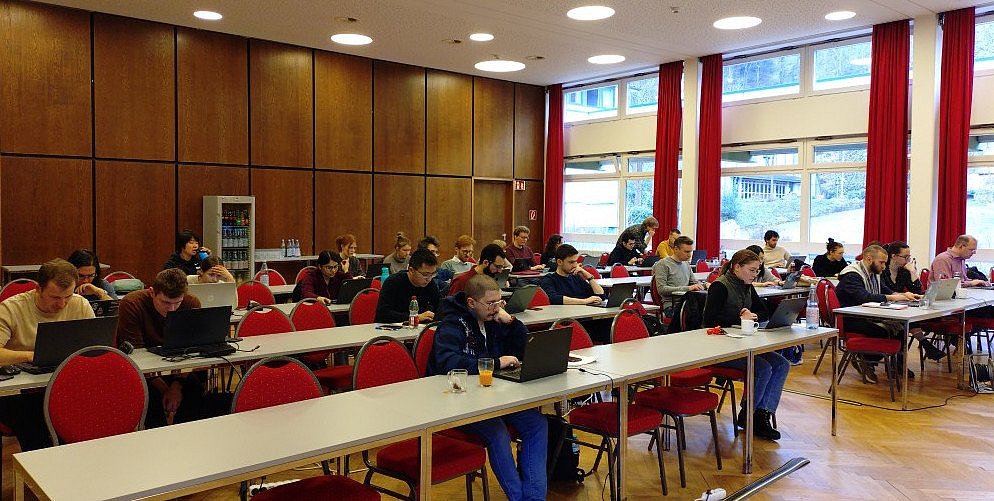The NEROGRAV “almost” Spring School 2025 took place from Monday, March 10th to Friday, March 14th in Neustadt an der Weinstrasse. More than fifty people took part in the event, including Masters and PhD students, junior scientists and a great organizing team.
Maylis de La Serve, IGN-IPGP, France, and Erin Hightower, JPL, United States

After a good walk uphill from the train station, we arrived in Kloster Neustadt, a quiet place surrounded by nature, perfect to stimulate reflection and scientific discussion.
The aim of this training school was to provide a comprehensive review of GRACE satellite gravimetry data processing and applications from level 1 (instrument data) to level 3 (gridded data directly usable for analysis). The first set of lectures took us through spherical harmonics analysis, the application of background and stochastic models, and de-striping and de-aliasing of the data.

The second part of the week was dedicated to applications of gravimetry data for observing surface mass changes on Earth, with lectures focusing on the cryosphere, the ocean, continental hydrology, and the solid Earth response to the loading and unloading of former ice caps. We also learned how the use of GRACE data in each of these focus area is critical to the study of climate change and its related impacts.
Finally, a look into data assimilation, SLR input for gravity field determination and the future of quantum satellite gravimetry missions topped off the week.
In addition to being delivered by experts in a range of fields, these talks were also accompanied and enhanced by well-designed and documented hands-on Practicals that allowed us to work with the GRACE data and develop a better understanding of spherical harmonics, filtering and data analysis.

Of course, a spring school must also include social events, and this one was very dynamic. Good spirits were quickly established at the icebreaker on Monday evening. People got acquainted very quickly, and engaging scientific discussions took place at all breaks, leaving little rest for our saturated brains. Thankfully, our fun trip to the Technik Museum Speyer provided a welcome respite from the day-long lectures and gave us some very entertaining chances to get to know each other. We also had the chance to attend a wine tasting hosted by Christoph Sommer and his lovely niece Nina, where we tried and learned about the local wines in the region.
We returned home with our heads full of new knowledge and fond memories. A big thanks to the entire organizing team and to the staff who welcomed us at Kloster Neustadt and also to the German Research Foundation (DFG) who provided funding for this event.
